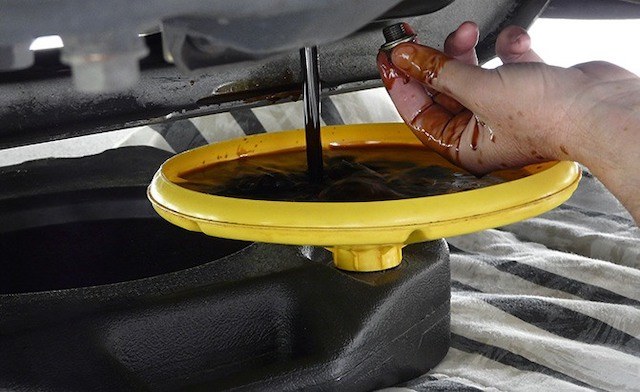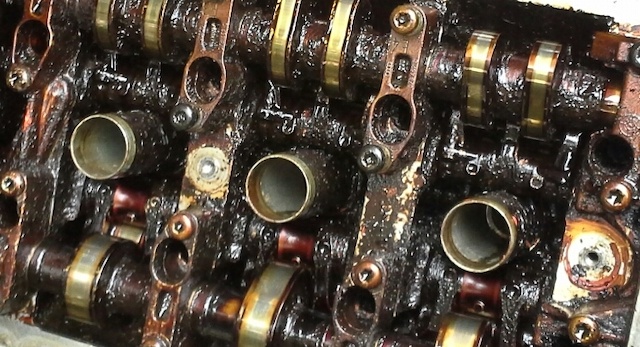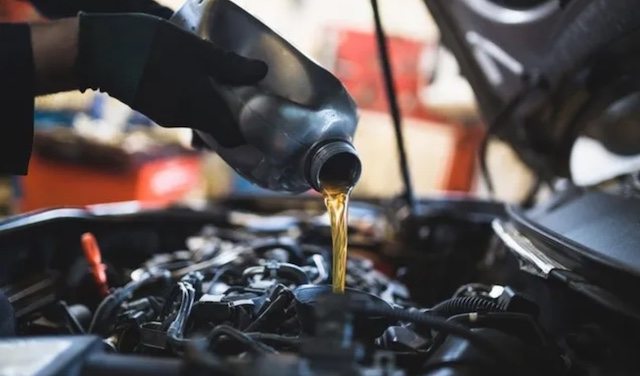What Happens When You Wait Too Long To Change The Oil

Motor oil isn’t a one-time fix. It degrades over time and loses its effectiveness. That’s why regular oil changes are essential for keeping your engine running smoothly. Different vehicles have different recommended intervals, so it’s always best to check your owner’s manual.
- For most passenger cars, oil should be changed every 3,000 to 7,500 miles, depending on whether you're using conventional or synthetic oil.
- Motorcycles typically need an oil change every 3,000 to 7,500 miles as well.
- ATVs require an oil change after about 100 hours of use.
- Snowmobiles should get their oil changed every 2,500 miles or before the start of each season.
Following these guidelines helps maintain your vehicle's performance and prevents costly damage down the road. Ignoring oil change recommendations can lead to serious issues that are hard to reverse.
Old Oil Turns Into Sludge – And That’s Not Good

Over time, motor oil collects dirt, metal particles, and other contaminants. As this happens, the oil becomes thicker and less effective. This buildup turns into sludge, which can clog vital parts of the engine and reduce its efficiency.
Sludgy oil can no longer properly lubricate the engine, leading to increased friction and heat. It also loses its ability to cool the engine, which is crucial for maintaining safe operating temperatures. Without proper lubrication and cooling, engine components can wear out faster and eventually fail.
In short, dirty oil can:
- Reduce engine lubrication
- Impair cooling capabilities
- Damage internal engine components
If left unchecked, this can lead to major mechanical failures that are expensive to repair.
1. Metal-to-Metal Contact – A Recipe for Disaster
When oil becomes too thick or contaminated, it can no longer provide the necessary lubrication between moving engine parts. This causes metal-to-metal contact, which leads to extreme wear and tear. Over time, this can cause severe damage such as:
- Increased oil consumption
- Loss of engine compression
- Fouled spark plugs and oxygen sensors
These issues are often signs that your engine is already in trouble. Once metal-to-metal contact occurs, the damage is usually irreversible, and engine failure may follow.
2. Engine Overheating – A Silent Killer
Poorly lubricated engines generate more heat due to increased friction. If the oil isn’t clean and effective, it can’t transfer heat away from the engine efficiently. This can lead to overheating, which puts your engine at risk of:
- Blown head gaskets
- Warped or cracked cylinder heads
- Engine seizure
Overheating is one of the most dangerous problems you can face, and it often results in expensive repairs or even a complete engine replacement.
3. Clogged Oil Filter – A Blockage in the System
As oil becomes dirtier, it clogs the oil filter more quickly. This restricts the flow of oil to critical engine parts, reducing lubrication and increasing the risk of mechanical failure. When the oil pressure drops, the engine can suffer from inadequate protection, leading to further damage.
Warranty Issues – Don’t Skip Maintenance

Many car manufacturers require you to follow their recommended maintenance schedule to keep your warranty valid. Skipping oil changes or not following the guidelines could void your warranty, leaving you responsible for any major repairs that come up later.
Prevention Is Always Better Than Cure
Changing your oil regularly is a small investment compared to the cost of fixing engine damage caused by neglect. Sticking to the manufacturer’s recommendations not only protects your vehicle but also saves you money in the long run. It’s a simple habit that can make a big difference in your car’s lifespan and performance.
Built In Compressor Wine Cooler
Built In Compressor Wine Cooler,Wine Fridge,Built In Wine Cooler,Stainless Steel Wine Cooler
Foshan Sunnai Electrical Appliance Co., Ltd , https://www.sunnaiwinecooler.com
